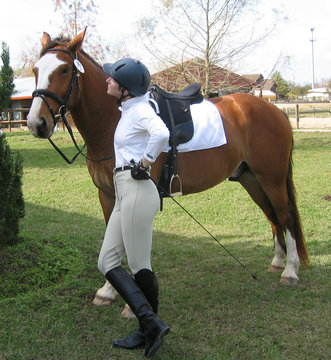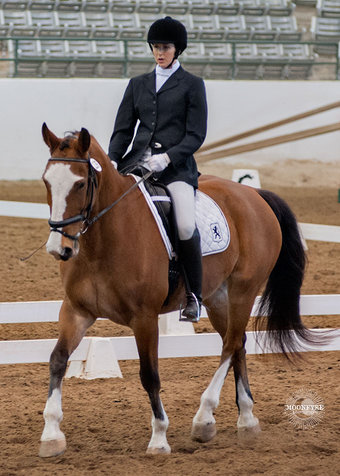How long did it take me to learn to delegate to my horse?
Answer: Not long and I am still continuing to learn!
There are degrees of delegation, within your business and when riding — and in both cases, trust is critical.
In the beginning, I trusted that my horse could put one foot in front of the other on a pretty dependable basis; that is, he wouldn’t fall down. Secondly, I trusted that he knew the basics of the horse and rider relationship and that we would learn together the fine details of dressage.
The thing that I gave far less consideration to was how much I had to learn. If someone had been able to explain and I had been able to comprehend all that was involved, I might not have endeavored to own a horse and pursue dressage in the first place. Yeah…no. It was going to happen and just like life and business, it would be a journey.
A journey from naiveté to complexity, from trust to loss of trust and back, from early wins and later losses, to the lessons and experiences that can only come from doing something that you love. So I offer these words of wisdom as you embrace delegation and the growth it can bring you:
- Do a background check: Before purchasing my horse, I studied his breeding and became familiar with his past ownership history and training. Do the same for anyone you hire (okay, maybe pass on studying their parentage!) but make sure you review their education, training, check references and perform basic credit and criminal history checks.
- Try before buying: I was able to ride my new horse for three weeks prior to purchase to get an even better feel for who he was and his capabilities. It also gave me a chance to identify any vices. Internships are a great way to try before you buy. A more seasoned hire needs to understand there is a probationary or trial time period. 90 days is fairly typical.
- Test: Begin with small or easy tasks. We test a horse by asking for a movement and then evaluating the response. Very similar with people, isn’t it?
- Challenge: Hand over the reins on a bigger, more complex project. Remain available for assistance but let the horse or person follow your direction (see “How Do You Delegate to a Horse?” for greater detail).
- Evaluate: Were the results what you expected? What went right? What went wrong? How can you do better? How can they do better? Were expectations set high enough or too high?
- Seek outside counsel: Unless you have done this whole thing before, and even then if you have, outside, objective counsel will speed you on your way. My horse (and people) trainer sees things I can’t, knows things I don’t and is willing to share her insight and resources over and over again until I am ready for the next thing. She has taught me how to delegate to my horse. Coaches provide the same for business owners.
- Develop yourself: Your business can only be as strong and as smoothly managed as you are. Just as a horse is a reflection of the rider, a business is a reflection of its leader. Read, watch videos, attend seminars – it applies for your business and to riding!
Most of all, enjoy the journey!


